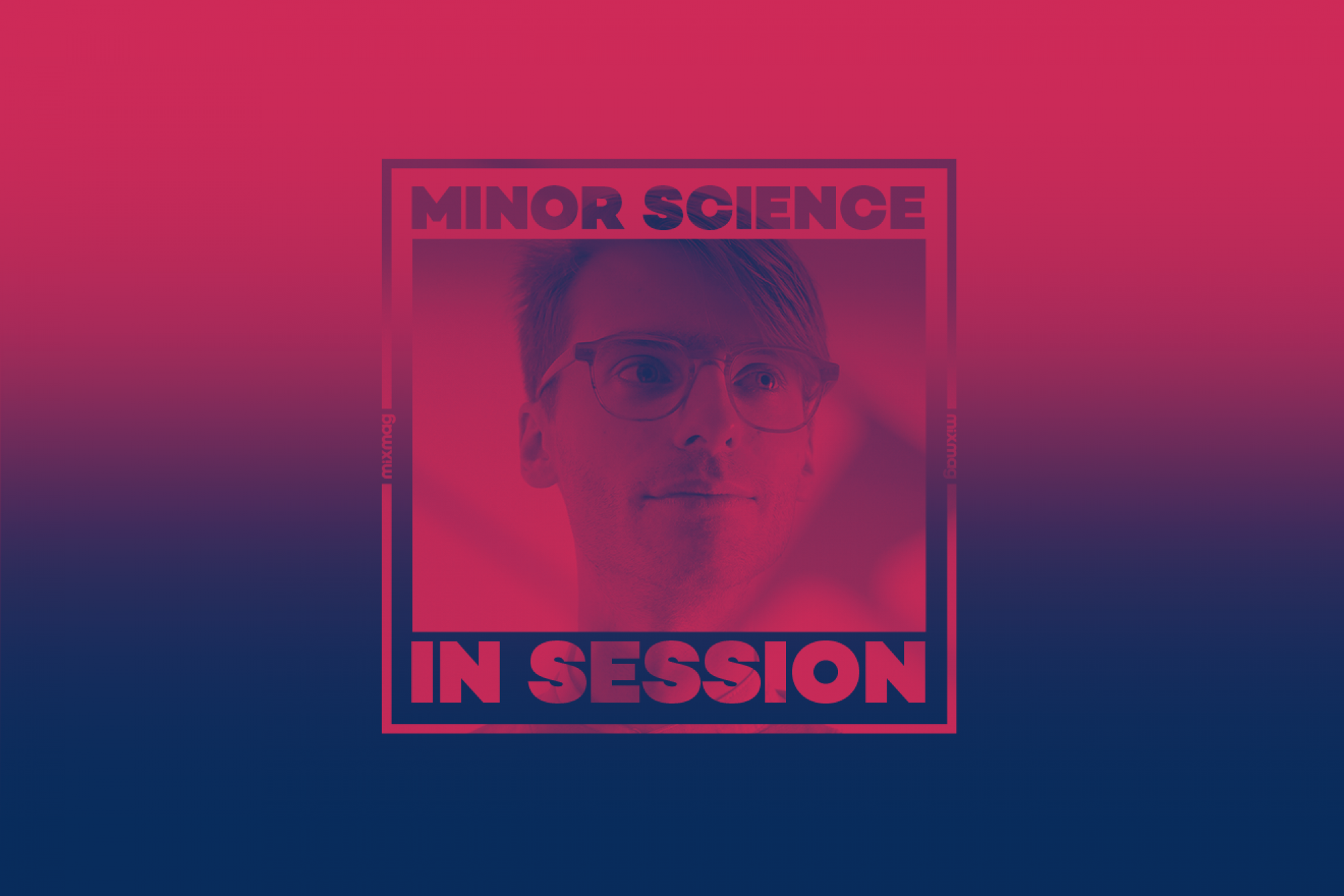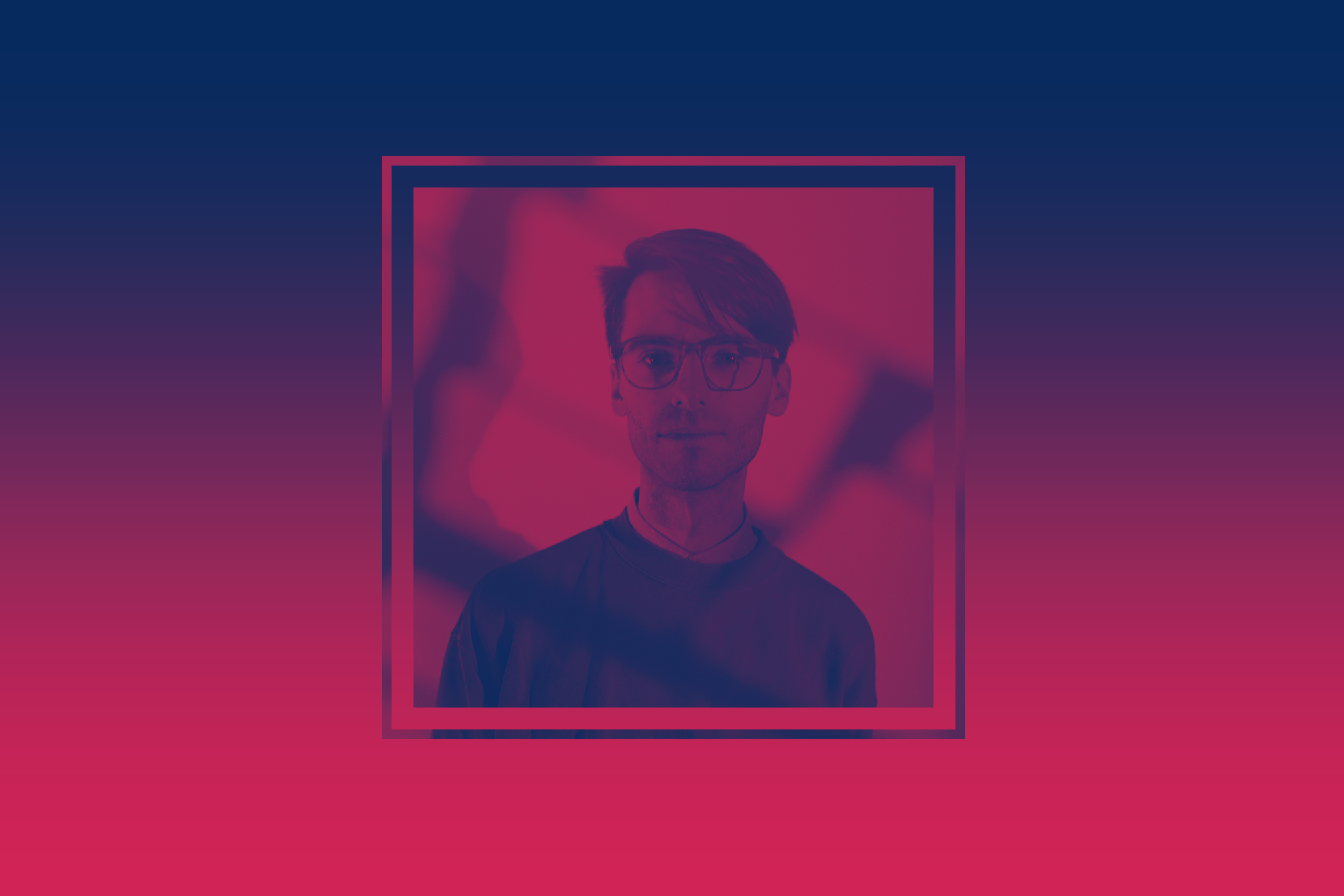 In Session
In Session
In Session: Minor Science
Relive the highs and flows of a club closing through this evocative Minor Science mix
Language has been central to Angus Finlayson’s work in music. He started out as a journalist, translating critical and emotional responses to music into written words. In summer 2018 he quit that role to focus on his DJ/producer project Minor Science. Now a full-time musician, language and its form has remained an influence on his graft. This month he released one of the best albums of 2020 so far, ‘Second Language’, on Whities. Learnings that the English-born, Berlin-based artist came to while studying German and French inspired his creative process.
The record dips into bassbin-busting low-ends and ascends upon glistening synth sounds. Textures bulge and then divert or disintegrate, creating space for a persistent stream of new ideas. A desire to go beyond the trappings of well-worn tropes is a defining feature of Minor Science’s music, and on ‘Second Language’ the producer probes forward at breakneck speeds, accelerating to tempos in the 150-170 BPM range where the rules of dance music convention have less sway.
The artwork depicts a German translation of a Samuel Beckett quote explaining why he switched from writing in English to French: “Because it’s easier to write without style”. Just as Beckett turned to a second language to take his writing to new places, Minor Science found the access to new worlds yielded by his own language studies fed into his songwriting. Shaking off old habits helped him open up to new means of self-expression.
Whities has been a fine home for Minor Science’s music. He debuted on the label as its fourth release and was able to spread his experimental wings without the pressure to match an entrenched catalogue. Together they have grown into bastions of groundbreaking dance music.
Minor Science is equally versatile as a DJ. From Bangface to Berghain, he energises dancefloors through the spectrum of undulating to rabble-rousing records. For further access to his tastes you can subscribe to receive fortnightly curated playlists from the artist on Currents FM, where an annotated breakdown of his process making ‘Second Language’ is available for free.
Minor Science’s In Session mix is themed around a club closing set and it’s making us yearn to relive those moments on the dancefloor. Check it out below, following a Q+A where we discuss the reception of club music when there are no clubs, being on the other side of reviews, and more.

Your debut album ‘Second Language’ came out this month. What’s it been like releasing a club-focused album during a time when all clubs are closed?
I think anybody who’s tried to release some work into the world recently would probably give the same answer: weird! It feels kind of absurd to be plugging something without any practical use at a time of global crisis. That said, I don’t think this whole thing has changed people’s overall appetite for music. In some respects the interest is even a little heightened, since more people are sat at home and looking for distractions. That’s music in general, though - obviously, club music is trickier, since it’s designed to be heard in a context which, currently, is almost non-existent. For now, we're all still carrying around some vestige of the club in our imaginations (at least I am). I guess it remains to be seen whether we can hang onto this in the months (maybe years?) ahead.
In general though, I’ve been really pleased by the response to the album. My impression is that lots of people have engaged with it, and I've been touched by the feedback I’ve had. I don’t feel particularly frustrated about the way things have gone. If there's one (admittedly small) silver lining to this situation, it's that I've been forced to re-focus on what's essential. I'm able to release my music into the world in the way I want to, and reach an audience which takes it seriously. That's a huge privilege. Now there's just the question of paying my rent.
Do you think the lack of clubs for DJs to air the album in currently is impacting the way it’s been received?
Though I love going to clubs and I love DJing, in my own music-making I've always had a kind of dysfunctional relationship with club utility. Even a track like ‘Volumes’, which was played quite a bit: it was intended for some imaginary club in my head, but most of the time when I heard it in a real club it felt weirdly flat, or inappropriate.
I feel like the album goes further in this. Maybe listeners will disagree, but I think it's about the least ‘clubby’ that a dance music album can be and still be called a dance music album. When working on the tracks, I made a conscious decision to prioritise the flow and feel of the release over the functional imperatives of the club. So while I’m grateful to the DJs who’ve played some of the tracks so far, I don't think they're really optimised for that context. What I'm saying is that I’m not sure these tracks would’ve been widely played on dancefloors even if we had a standard festival season ahead of us. Maybe I’m wrong, who knows.
Read this next: "Coronavirus will never stop the rave": How people are finding new ways to party online
The album takes inspiration from your experience learning new languages. How did that theme develop and what influence did it have on the writing process?
Learning languages got me interested in the mysterious relationship between a first language and a second language - how they open up distinct worlds, and how translation is an imperfect, creative attempt to mediate between them. That idea became a way of understanding some things I was trying to do with the album. I see several of the tracks as imperfect 'translations' of genres that I like. And the interlude-y 'Second Language' tracks are all translations of each other: in each one, something is lost from the others, and some other stuff is gained. Having an idea like this helped me to bind the whole release together in the later stages of making it. The idea helped make it more coherent, at least to my mind.
In a 2014 article for Fact you wrote about how being a music critic changed the way you relate to music. Has quitting your day job as a writer to focus on being a producer/DJ changed your relationship to music and approach to making/playing it?
It’s wild how that article still tops the SEO when you Google my name! The short answer is yes. Suddenly doing a lot less writing and having more time in the studio were major factors in me being able to get a longer release finished. And there were aspects of the journalistic churn - the need to keep up with new developments, to engage with significant musical events (good and bad), and to write interestingly about releases and artists - which drained a lot of the curiosity and energy I now put into producing.
But in a sense the stuff I'm talking about in that article isn't just about music writers, but about anyone who does something music-related as their job. The way I sift, evaluate and acquire music for my DJing now has parallels with the way I would find stuff to review when I was writing. In both cases, the relationship can feel forced or artificial sometimes, but it can also be really rewarding. When I'm working intensely on my own music, the situation is kind of the inverse: I barely listen to other music, because I don't have the time and I want to rest my ears. That's an 'artificial' relationship with music too, with its own pitfalls and benefits. So some things have changed, and some haven't.

A lot of music criticism is obsessed with how new/fresh music sounds. Do you think your time as a critic has inspired a desire for experimentation in your own music?
No, I think my interest in newness when I was a music critic came from the same place as my interest in newness as a maker of music, and also a fan of it. I’m not against all forms of nostalgia or revivalism in dance music, but I think my patience for it wears out a lot quicker than some other people's. Thinking about it now, I'm wondering whether this is partly because my formative experiences in dance music were going to see dubstep, breakcore, that kind of stuff. These genres weren't super reverent towards their past, as opposed to house and techno, where knowledge of and respect for tradition comes with the territory. Both approaches have their upsides and downsides, and I think I borrow bits from both now.
Read this next: "Silly music": Anti-establishment artists are reclaiming dance music's funny side
A number of reviews of your album have been published. What’s it like now being on the other side of these? Are there any comments that have particularly stood out to you?
It's kind of how I imagined. Positive reviews are nice, especially if you feel like they got what you were trying to do. Middling reviews can wound the ego - who likes to think of themselves as average? - but you have to realise it's ego and get over it. I haven't received a proper pasting yet, but I imagine that can be either frustrating or plain horrible, depending on how on-point it is. In general, as a white cis man who conforms to many of society's stereotypes about an 'auteur producer' (those glasses!), I'm shielded from most genuinely hurtful criticism. My musical colleagues who don't fit that image can get a much rougher time from the press - and the industry in general.
One comment that's stayed with me was from Philip Sherburne in Pitchfork. He made a criticism about my tracks sometimes leaving "tension unresolved". This was something I'd wrestled with towards the end of making the album, and ultimately couldn't fix. Having this mirrored back at me helps me to recognise the flaw and think about doing things differently next time. That kind of insightful, useful criticism is really valuable I think, and it's quite rare.
Production is something you’ve generally taken more seriously than DJing, but you recently told Clash that the importance of each has become more balanced for you recently. How are you dealing with having the outlet of playing in clubs shut off during this lockdown?
Honestly, although I love DJing, I haven't missed it yet. I think it helps that the last gig I played before lockdown was one of my favourites ever and the realisation of a decade-long dream. Hard to top that!
I also experience my life as an ongoing attempt to balance competing priorities. I guess this is common to many lives, especially in this gig economy we currently inhabit. DJing is awesome - and pays the bills - but it also fucks with my sleep patterns and my health (not to mention the environment). My studio work, meanwhile, goes best when I have a regular schedule & am getting nine hours a night. There's no perfect balance: one thing is usually suffering while the other thrives. (First world problems, boo hoo). So having one of those taken out of the equation, and being able to throw myself into the other one (at least until the money runs out), is in some ways a relief.
You attended and played at the Bang Face Weekender just as the music events industry was on the cusp of shutting down. What was that like?
This was the dream gig I mentioned above. My brother and some of our close friends also played - we've all been going to the festival more or less since it started - so it was a very emotional and affirming experience. In terms of the vibe, Bang Face feels like the apocalypse anyway, so in a lot of respects it wasn’t much different.
Read this next: We went to Bangface, the final rave before the world stopped dancing
Where did you record your In Session mix and what equipment did you use?
I recorded it in my living room on two Pioneer XDJ-700s and an A&H Xone 23 mixer.
How did you approach your In Session mix?
I had the pleasure of playing a few closing sets in the weeks before lockdown, including at Panorama Bar for the Whities party. Each time I play one I learn a lot about the specific kind of flow & energy which works at the end of the night. By the time I started preparing this mix all my gigs had been cancelled for the foreseeable future, and it seemed appropriate to record something with an ‘ending’ feeling. So the mix is intended as a kind of condensed closing set. It’s more linear than my usual studio mixes, and the structure of it is different: the first half catches that end-of-peaktime energy, then the second half funnels it into something more introspective.
Minor Science's 'Second Language' is out now, get it via Bandcamp or other record stores
Patrick Hinton is Mixmag's Digital Features Editor, follow him on Twitter
Tracklist:
Amotik - Chatis [Amotik]
Stine Janvin - Tripple A [Pan]
Minor Science - Polyglottal [Whities]
Literon - Fragma [Fortek]
Shawn Rudiman - Passcode [Self-released]
Falling Apart - 202 A2 [303202]
Rx - I’m A Beast! [Alma Mater]
Maelstrom - Smoker (Sync 24 Remix) [cultivated electronics]
Synapse - Get Some [Serotonin]
3Phaz - Exploit [100Copies]
Doubt, Syn & Tension - Flood [Flood]
Berg Jaär - Othies [Planet Rhythm vs Room]
DJ Boss - Rovny Rokin [Planet Rhythm]
Savinto - Dark Ending [Compressed]
Florian Meindl - Space Traveler (Lucy Remix) [Flash]
Deniro - Monsoon 1 [Tape]
Martyn - One Eye [3024]
Highfield Casuals - Highfield Daze [Craigie Knowes]
As One - Shambala [ART]
HVL - Noburu’s Arp [Bassiani]
Wordcolour - Tell Me Something [forthcoming]
Alan Backdrop - Esp [Semantica]
JAB - Chanterai Por Mon Coraige [Shelter Press]
Alice Coltrane - Wisdom Eye [Superior Viaduct]
Read this next: Get the best of Mixmag direct to your Facebook DMs


